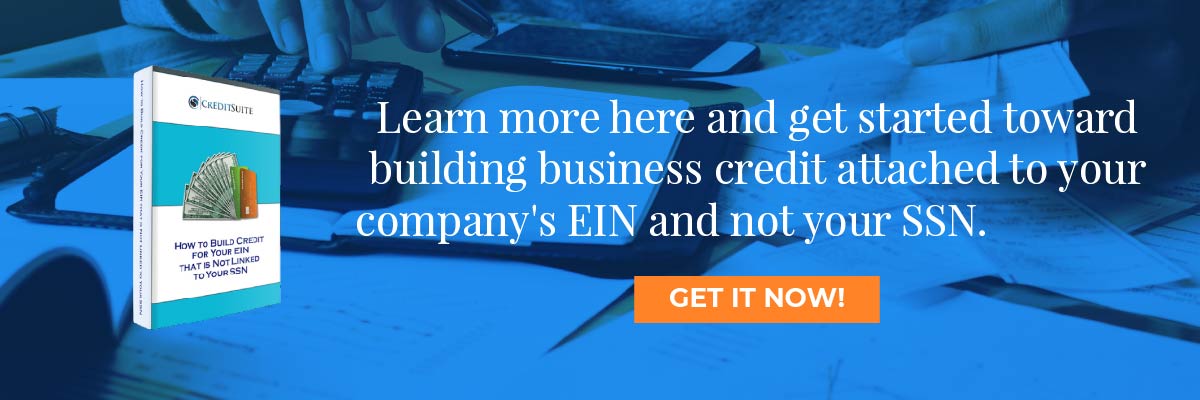- Connect With Us!
- (877) 600-2487
- info@creditsuite.com
How to Set Up a New Business in Connecticut
Published By Janet Gershen-Siegel at June 13th, 2019
Starting a Business in Connecticut
Have you been wondering: exactly how do I start a new business in Connecticut? And more importantly, can I do so no matter what the economic conditions are? Can I start a new business in Connecticut during a recession?
Start a New Business in Connecticut – Advantages and Disadvantages
Business Insider says that Connecticut is in the second highest set of ten states to start a new business in, for the entire country, per a 2016 article. But beware of the high cost of living in Connecticut. The business taxes are also problematic. Yet business owners in Connecticut have a good supply of available employees. And they have solid education levels. The state’s productivity score is excellent. It is the third highest per capita GDP ($64,115). The state also has the fourth best business survival rate score in the nation.
Recent Slippage
In 2018, Forbes puts Connecticut at a dismal number 40. Also in 2018, Fit Small Business clocks in Connecticut at number 31. Keep in mind, all three websites use differing criteria.
Forbes praises Connecticut for its number five quality of life. But then the numbers sink like a rock. Labor supply and growth prospects are both worse than the average. And business costs, regulatory environment, and economic climate are all in the worst ten.
Fit Small Business gives Connecticut high marks (top ten) for quality of life and the cost of starting a business. Access to capital and labor market are both better than the average. Labor market is the measure of both the desirability of an area and the number of people with bachelor’s degrees. But startup activity, cost of living, and taxes are all in the worst ten.
Only you can decide whether it’s worthwhile to start a business in Connecticut. And don’t forget – there are marked differences between the southern part of the state (which is more akin to New York) and the northern part (better aligned with New England). In particular, if starting a business in northern Connecticut, if it’s feasible, you might want to go out of state. Rhode Island is generally cheaper, and Massachusetts has better access to capital and a livelier startup scene.
Start a New Business in Connecticut – Top Industries
According to the official government of Connecticut website, the top industries for this state are the insurance industry; local passenger transportation; transportation equipment manufacturing; instruments manufacturing; and fabricated metal manufacturing.
Enterprising entrepreneurs should be able to readily spot opportunities amidst the larger industries. These can include trucking parts and supplies for any industry; data support for insurance and manufacturing firms; and import/export.
Here is exactly how to start business in Connecticut.
Start a New Business in Connecticut – Connecticut New Business Secretary of State Requirements
Register a Business Name
To avoid associating a business’s name with an owner’s personal name, they should either file for a trade name or register as a corporation. Visit the Connecticut Commercial Recording Division’s webpage to file for a trade name or browse through existing businesses. If a business has already registered the trade name, then the business owner will have to choose a new one. An application for Reservation of Name is available online at Reserve a Connecticut Corporation Name at the Connecticut Secretary of State website. The fee is $60.00 to reserve a corporate name and the reservation will then be effective for a period of 120 days.
Business Permits and Licenses
Search for licenses at the Connecticut Economic Resource Center.
Local Permits and Licenses
Check with a local municipality, city or county office or website for permitting information. See if there may be any local licensing or permit requirements. E. g., in Hartford, you will need to go to the Business Licenses page on the Hartford city website.
Start a New Business in Connecticut – Business Registration
Get the registrations forms through the Connecticut Secretary of State.
Tax Registration
Register on the Department of Revenue Services business page.
Start a New Business in Connecticut – Virtual Offices
Alliance offers several choices for entrepreneurs looking to open up Connecticut virtual business offices. However, aside from Cheshire, all of these locations are in the south coastal area, just north of Long Island Sound.
Alliance offers the following cities:
- Cheshire
- Darien
- Greenwich
- Stamford
- Westport
DaVinci offers Connecticut virtual business space in Glastonbury and Middletown, in addition to some of the cities covered by Alliance.
Business owners who are looking to open up a virtual shop in Hartford will need to work with Regus. For other areas of the state, business owners might want to seek out local entrepreneurs or even computer user groups in an effort to find help in this area. Other options might include virtual business office spaces in New York, Rhode Island, or Massachusetts, depending upon where in the somewhat small state of Connecticut a business owner is based.
Start a New Business in Connecticut – Build Business Credit
Company credit is credit in a business’s name. It doesn’t tie to a business owner’s consumer credit, not even if the owner is a sole proprietor and the solitary employee of the business.
Thus, an entrepreneur’s business and personal credit scores can be very different.
The Benefits
Because small business credit is separate from personal, it helps to protect an entrepreneur’s personal assets, in the event of court action or business insolvency.
Also, with two distinct credit scores, an entrepreneur can get two separate cards from the same merchant. This effectively doubles buying power.
Another advantage is that even new ventures can do this. Visiting a bank for a business loan can be a formula for disappointment. But building small business credit, when done the right way, is a plan for success.
Individual credit scores depend upon payments but also various other components like credit utilization percentages.
But for business credit, the scores truly merely depend on whether a small business pays its bills punctually.
Learn more here and get started toward building business credit attached to your company’s EIN and not your SSN.
The Process
Building company credit is a process, and it does not happen without effort. A company has to actively work to build business credit.
Nevertheless, it can be done readily and quickly, and it is much more rapid than establishing personal credit scores.
Merchants are a big component of this process.
Carrying out the steps out of sequence will result in repetitive denials. No one can start at the top with company credit. For instance, you can’t start with retail or cash credit from your bank. If you do, you’ll get a rejection 100% of the time.
Start a New Business in Connecticut – Small Business Fundability
A business must be fundable to credit issuers and merchants.
That’s why, a business will need a professional-looking website and email address. And it needs to have website hosting bought from a company such as GoDaddy.
And also, business phone and fax numbers must have a listing on ListYourself.net.
Additionally, the company phone number should be toll-free (800 exchange or the like).
A business will also need a bank account devoted strictly to it, and it needs to have all of the licenses necessary for running.
Learn more here and get started toward building business credit attached to your company’s EIN and not your SSN.
Start a New Business in Connecticut – Working with the IRS
Visit the IRS website and obtain an EIN for the company. They’re totally free. Pick a business entity like corporation, LLC, etc.
A small business can begin as a sole proprietor. But they will probably want to change to a sort of corporation or an LLC.
This is in order to decrease risk. And it will take full advantage of tax benefits.
A business entity will matter when it involves tax obligations and liability in the event of litigation. A sole proprietorship means the entrepreneur is it when it comes to liability and tax obligations. No one else is responsible.
Sole Proprietors Take Note
If you operate a small business as a sole proprietor, then at least be sure to file for a DBA. This is ‘doing business as’ status.
If you do not, then your personal name is the same as the business name. As a result, you can end up being directly responsible for all business financial obligations.
Also, according to the Internal Revenue Service, with this structure there is a 1 in 7 chance of an IRS audit. There is a 1 in 50 chance for corporations! Steer clear of confusion and dramatically decrease the chances of an IRS audit at the same time.
Start a New Business in Connecticut – Beginning the Business Credit Reporting Process
Start at the D&B website and obtain a cost-free D-U-N-S number. A D-U-N-S number is how D&B gets a small business in their system, to produce a PAYDEX score. If there is no D-U-N-S number, then there is no record and no PAYDEX score.
Once in D&B’s system, search Equifax and Experian’s sites for the company. You can do this at fastcs.wpengine.com/reports. If there is a record with them, check it for accuracy and completeness. If there are no records with them, go to the next step in the process.
In this manner, Experian and Equifax will have activity to report on.
Vendor Credit Tier
First you should build trade lines that report. This is also called the vendor credit tier. Then you’ll have an established credit profile, and you’ll get a business credit score.
And with an established business credit profile and score you can begin to acquire credit in the retail and cash credit tiers.
These varieties of accounts tend to be for the things bought all the time, like marketing materials, shipping boxes, outdoor work wear, ink and toner, and office furniture.
But first of all, what is trade credit? These trade lines are credit issuers who will give you initial credit when you have none now. Terms are ordinarily Net 30, rather than revolving.
Hence, if you get approval for $1,000 in vendor credit and use all of it, you must pay that money back in a set term, such as within 30 days on a Net 30 account.
Details
Net 30 accounts must be paid in full within 30 days. 60 accounts need to be paid completely within 60 days. In contrast to with revolving accounts, you have a set time when you must pay back what you borrowed or the credit you used.
To begin your business credit profile properly, you need to get approval for vendor accounts that report to the business credit reporting agencies. When that’s done, you can then make use of the credit.
Then repay what you used, and the account is on report to Dun & Bradstreet, Experian, or Equifax.
Vendor Credit Tier – It Helps
Not every vendor can help in the same way true starter credit can. These are vendors that will grant an approval with very little effort. You also need them to be reporting to one or more of the big three CRAs: Dun & Bradstreet, Equifax, and Experian.
You want 5 to 8 of these to move onto the next step, which is the retail credit tier. But you may have to apply more than once to these vendors. So, this is to validate you are reliable and will pay promptly.
Retail Credit Tier
Once there are 5 to 8 or more vendor trade accounts reporting to at least one of the CRAs, then move to the retail credit tier. These are service providers like Office Depot and Staples.
Only use your Social Security Number and date of birth on these applications for verification purposes. For credit checks and guarantees, use the business’s EIN on these credit applications.
One good example is Lowe’s. They report to D&B, Equifax and Business Experian. They want to see a D-U-N-S and a PAYDEX score of 78 or higher.
Fleet Credit Tier
Are there 8 to 10 accounts reporting? Then move onto the fleet credit tier. These are businesses like BP and Conoco. Use this credit to purchase fuel, and to fix, and take care of vehicles. Only use your Social Security Number and date of birth on these applications for verification purposes. For credit checks and guarantees, make sure to apply using the small business’s EIN.
One such example is Shell. They report to D&B and Business Experian. They need to see a PAYDEX Score of 78 or more and a 411 business phone listing.
Shell may claim they want a certain amount of time in business or revenue. But if you already have adequate vendor accounts, that won’t be necessary. And you can still get an approval.
Learn more here and get started toward building business credit attached to your company’s EIN and not your SSN.
Cash Credit Tier
Have you been sensibly handling the credit you’ve gotten up to this point? Then progress to the cash credit tier. These are businesses like Visa and MasterCard. Only use your Social Security Number and date of birth on these applications for verification purposes. For credit checks and guarantees, use your EIN instead.
One such example is the Fuelman MasterCard. They report to D&B and Equifax Business. They need to see a PAYDEX Score of 78 or higher. And they also want you to have 10 trade lines reporting on your D&B report.
Plus, they want to see a $10,000 high credit limit reporting on your D&B report (other account reporting).
Also, they want you to have an established small business.
These are service providers such as Walmart and Dell, and also Home Depot, BP, and Racetrac. These are typically MasterCard credit cards. If you have 14 trade accounts reporting, then these are in reach.
Start a New Business in Connecticut – Monitor Your Business Credit
Know what is happening with your credit. Make certain it is being reported and address any inaccuracies as soon as possible. Get in the habit of checking credit reports and digging into the specifics, and not just the scores.
We can help you monitor business credit at Experian and D&B for only $24/month. See: fastcs.wpengine.com/monitoring.
Update Your Information
Update the information if there are inaccuracies or the details is incomplete.
Start a New Business in Connecticut – Fix Your Business Credit
So, what’s all this monitoring for? It’s to dispute any errors in your records. Errors in your credit report(s) can be corrected. But the CRAs often want you to dispute in a particular way.
Disputes
Disputing credit report mistakes commonly means you mail a paper letter with duplicates of any evidence of payment with it. These are documents like receipts and cancelled checks. Never mail the original copies. Always send copies and keep the originals.
Fixing credit report errors also means you specifically detail any charges you challenge. Make your dispute letter as crystal clear as possible. Be specific about the concerns with your report. Use certified mail so that you will have proof that you sent in your dispute.
Start a New Business in Connecticut – A Word about Building Business Credit
Always use credit smartly! Don’t borrow beyond what you can pay off. Keep track of balances and deadlines for repayments. Paying promptly and completely will do more to elevate business credit scores than almost anything else.
Building business credit pays. Great business credit scores help a small business get loans. Your credit issuer knows the company can pay its financial obligations. They know the company is bona fide.
The company’s EIN attaches to high scores and lenders won’t feel the need to request a personal guarantee.
Business credit is an asset which can help your small business in years to come.
Learn more here and get started toward opening a new business in Connecticut.
Want to start a new business someplace else in America? Then check out our handy guide to starting a business in any state in the country.
Connecticut’s Response to COVID-19
This is how Connecticut is handling COVID-19. On March 16, the SBA approved Governor Ned Lamont’s request to begin offering disaster-relief loans to Connecticut small businesses and nonprofits. Companies in the state can now apply for loans of up to $2 million through a special page on the SBA website.
See: Connecticut’s information on COVID-19 for small businesses.

 " class="attachment-blog-single size-blog-single wp-post-image" alt="Get Business Credit Cards for New Businesses Credit Suite-Business Line of Credit Decoded" title="Get Business Credit Cards for New Businesses">>
" class="attachment-blog-single size-blog-single wp-post-image" alt="Get Business Credit Cards for New Businesses Credit Suite-Business Line of Credit Decoded" title="Get Business Credit Cards for New Businesses">>
